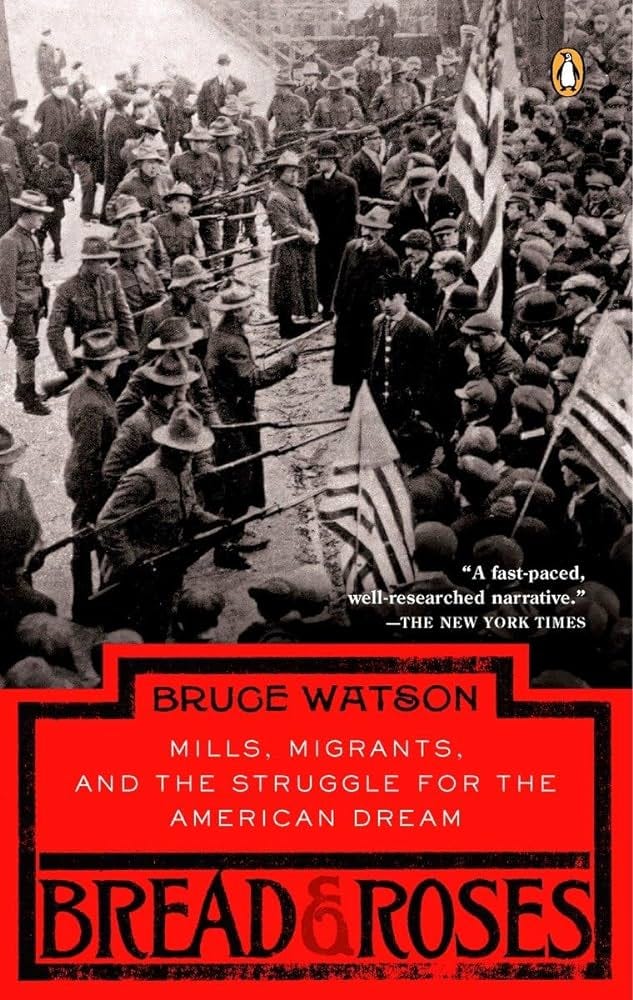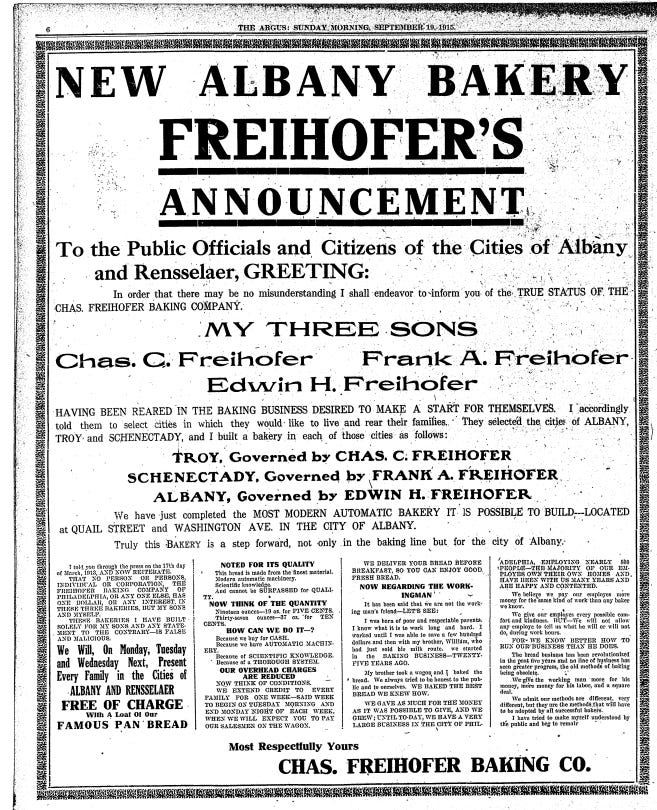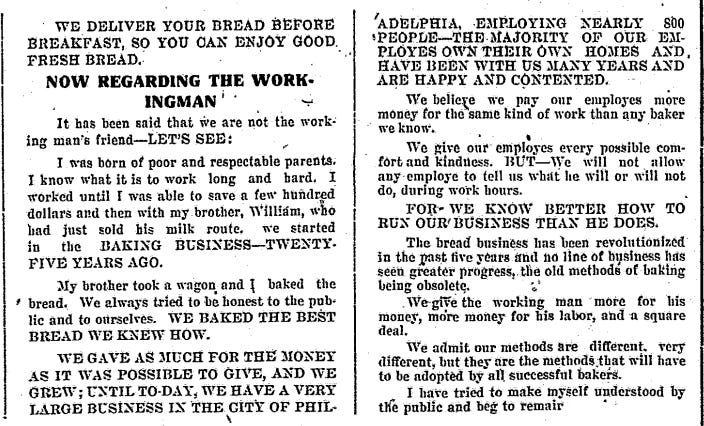Dear Bread Pen Pals,
Today is Labor Day, the bittersweet bookend of summer that came to be as a holiday for American workers. One festival I wish I could attend is in Lawrence, Massachusetts. The Bread & Roses Festival salutes its labor and immigrant history, and the contemporary city’s people. I read an excellent book about Lawrence earlier this year, Bread and Roses: Mills, Migrants and the Struggle for the American Dream by Bruce Watson. Tracing the 1912 strike of Lawrence textile workers, I wrote you about the book before and have to tell you about it again. I hope you’ll read it.
The strike in Lawrence lasted two months and two days and inspired others, like one in nearby Lowell’s cotton mills. Lowell workers went on strike, supported by leaders from the International Workers of the World. Ten thousand workers marched the streets, looking for 15-20% raises.
These strikes sent tremors throughout the nation. In Troy and Cohoes, the local textile and garment gentry had to have been worried. Researching the history of the YWCA here, I found suggestions that one way that collar workers — meaning people who made detachable shirt collars and cuffs — were controlled was through the organization, which was run by wives of the collar industry.1
I can’t talk about Troy and labor without mentioning Kate Mullany, the 19-year-old Irish woman who organized one of the first successful women’s union, the Collar Laundry Worker’s Union, in 1864.
And I can’t talk about anything without thinking about bread! So I’ll invite you to take another glance at Freihofer’s, Troy’s first factory bakery. As such, it threatened smaller bakeries. The paper trail I have of this is limited to full page ads by the Freihofer’s company asserting their benevolence. I expect the ads were made in defense of claims they were receiving, but I have yet to find any reference to the accusations, or who made them. In lieu of those, I give you this, which ran in The Albany Argus, September 19, 1915:

Here’s what the picture says:
NOW REGARDING THE WORKING MAN
It has been said that we are not the working man’s friend – LET’S SEE:
I was born of poor and respectable parents. I know what it is to work long and hard. I worked until I was able to save a few hundred dollars, and then with my brother, William, who had just sold his milk route, we started in the BAKING BUSINESS – TWENTY-FIVE YEARS AGO.
My brother took a wagon and I baked the bread. We always tried to be honest to the public and to ourselves. We baked the best bread we knew how.
We gave as much for the money as it was possible to give, and we grew; until today, we have a very large business in the city of Philadelphia, employing nearly 800 people – the majority of our employees own their own homes and have been with us many years and are happy and contented.
WE BELIEVE WE PAY OUR EMPLOYEES MORE MONEY FOR THE SAME KIND OF WORK THAN ANY BAKER WE KNOW. WE GIVE OUR EMPLOYEES EVERY POSSIBLE COMFORT AND KINDNESS. BUT — WE WILL NOT ALLOW ANY EMPLOYEE TO TELL US WHAT HE WILL OR WILL NOT DO, DURING WORKING HOURS.
FOR WE KNOW BETTER HOW TO RUN OUR BUSINESS THAN HE DOES.
The bread business has been revolutionized in the past five years and line of business has seen greater progress, the old methods of baking being obsolete.
We give the working man more for his money, more money for his labor, and a square deal.
We admit our methods are different, Very different, but they are the methods that will have to be adopted by all successful bakers. I have tried to make myself understood by the public and beg to remain most respectfully yours Chas. Freihofer Baking CO.
And I remain most respectfully yours,
Amy







Hi Amy,
Thanks for posting this and posts similar. I think it's really important for - (A) people to know their herstory/history, and - (B) to take a stand on issues of today, yesterday, and tomorrow.
You can go anywhere on the internet and get a recipe for brioche or a sourdough loaf but I appreciate people like you and your friend Andrew Janjigian who offer a more complete picture of what it means to be a contributing, engaged member of our society. We need more people like you who act responsibly in a time when attention to the things around us and our impacts are so important. Keep up the good work. Thank you, Bill
Thanks for sharing some of the labor history in your area! I grew up in southeastern Michigan, where the UAW is still a big deal. My mom was always proud of the fact that her brother-in-law had participated in a pivotal sit-down strike in 1930's Flint (a Fisher Body plant, which was a GM subsidiary). Talk about history books coming to life!